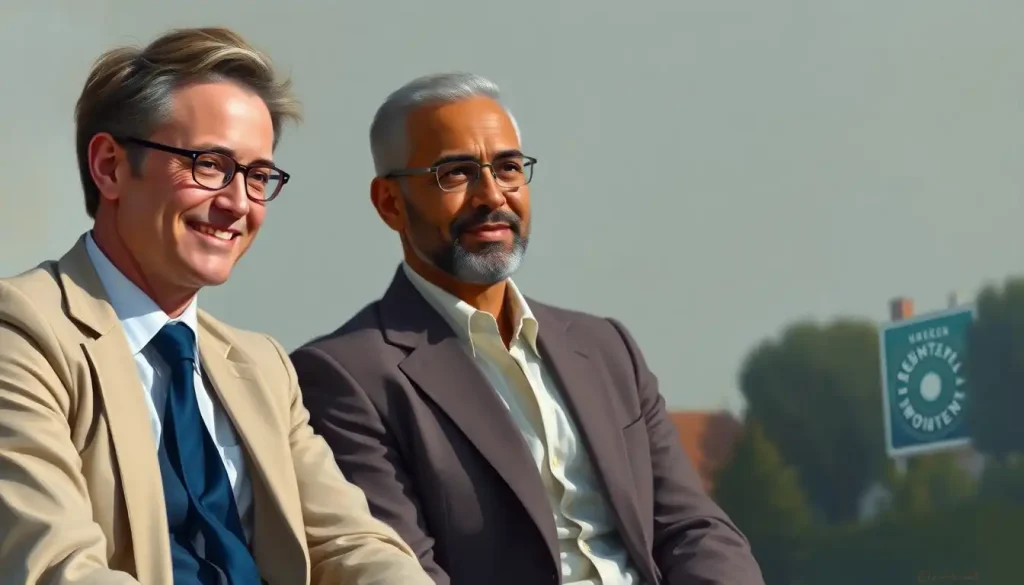From haute couture fashion houses to cutting-edge aerospace engineering, the pillars of modern French prosperity paint a fascinating portrait of how a nation transforms cultural excellence into economic might. France, with its rich history and diverse economy, has long been a cornerstone of European and global economic landscapes. The country’s journey from post-war reconstruction to becoming the world’s seventh-largest economy by nominal GDP is a testament to its resilience, innovation, and adaptability.
France’s economic narrative is deeply intertwined with its cultural heritage, technological advancements, and strategic global positioning. The nation has skillfully leveraged its strengths in various sectors, from luxury goods to high-tech industries, creating a unique economic identity that sets it apart on the world stage. As we delve deeper into the intricacies of France’s wealth, we’ll uncover the key factors that have contributed to its economic success and explore the challenges and opportunities that lie ahead.
The Engines of French Economic Power
France’s economy is a diverse tapestry woven from various sectors, each contributing significantly to the nation’s overall wealth. Let’s explore some of the major industries that drive the French economic machine.
Tourism and Hospitality: The Allure of France
France consistently ranks as the world’s top tourist destination, welcoming millions of visitors each year. The Eiffel Tower, the Louvre, the French Riviera – these iconic attractions are more than just postcard-perfect scenes; they’re powerful economic drivers. The tourism sector contributes substantially to France’s GDP, creating jobs and stimulating local economies across the country.
But it’s not just about the landmarks. France’s reputation for exquisite cuisine, world-class wines, and a certain “je ne sais quoi” in lifestyle keeps visitors coming back. This cultural magnetism translates into tangible economic benefits, supporting a vast network of hotels, restaurants, and service industries.
Luxury Goods and Fashion: The Epitome of Elegance
When it comes to luxury, France reigns supreme. Home to some of the world’s most prestigious fashion houses and luxury brands, the country has turned style into a significant economic asset. Names like Louis Vuitton, Chanel, and Hermès are not just fashion labels; they’re global ambassadors of French craftsmanship and creativity.
The luxury sector’s contribution to France’s economy goes beyond mere sales figures. It supports a complex ecosystem of artisans, designers, and specialized manufacturers, preserving traditional skills while driving innovation. This industry also plays a crucial role in France’s soft power, enhancing the country’s global image and attracting high-value tourism.
Aerospace and Defense: Reaching for the Stars
France’s aerospace industry is a testament to the country’s technological prowess and innovative spirit. Airbus, a pan-European company with strong French roots, competes head-to-head with Boeing in the global commercial aircraft market. The aerospace sector not only contributes significantly to exports but also fuels research and development, keeping France at the forefront of technological advancement.
The defense industry, closely linked with aerospace, is another crucial component of France’s industrial landscape. Companies like Dassault and Thales are major players in the global defense market, contributing to France’s strategic autonomy and economic strength.
Agriculture and Food Production: A Taste of Success
While France may be renowned for its high-tech industries and luxury goods, its agricultural sector remains a cornerstone of the economy. The country is the European Union’s largest agricultural producer, known for its diverse range of high-quality products, from wines and cheeses to grains and livestock.
French agriculture isn’t just about quantity; it’s about quality and tradition. The concept of “terroir” – the unique environmental factors that influence a crop’s characteristics – is deeply ingrained in French agricultural practices. This commitment to quality and authenticity has helped French food products maintain a premium position in global markets.
Automotive Industry: Driving Innovation
France’s automotive industry, with iconic brands like Renault, Peugeot, and Citroën, has long been a significant contributor to the country’s industrial output. While facing stiff competition from global players, French automakers have shown resilience and adaptability, particularly in embracing electric and hybrid technologies.
The automotive sector’s importance extends beyond manufacturing. It supports a vast network of suppliers, contributes to research and development, and plays a crucial role in France’s transition towards a more sustainable economy.
The Financial Heartbeat of France
At the core of France’s economic might lies a robust and sophisticated financial sector. This financial ecosystem not only supports domestic economic activities but also positions France as a key player in the global financial landscape.
Banking and Insurance: Pillars of Stability
France boasts some of Europe’s largest and most influential banking institutions. Banks like BNP Paribas, Société Générale, and Crédit Agricole are not just domestic powerhouses but global financial players. These institutions provide the financial backbone for French businesses, facilitate international trade, and contribute significantly to the country’s GDP.
The insurance sector, closely intertwined with banking, is equally robust. Companies like AXA have expanded globally, showcasing French expertise in risk management and financial services on the world stage.
Paris: A Rising Star in the Financial Firmament
While London has traditionally been Europe’s financial capital, Paris is increasingly positioning itself as a viable alternative, especially in the wake of Brexit. The French capital is home to Euronext, the largest stock exchange in continental Europe, and has been actively courting financial firms looking to maintain a strong EU presence.
The city’s efforts to attract financial services have been bolstered by government initiatives, including tax incentives and regulatory reforms. As a result, Paris is seeing an influx of financial talent and institutions, further cementing its status as a key European financial hub.
Luxembourg Wealth: Exploring the Economic Powerhouse of Europe offers an interesting comparison to France’s financial landscape, highlighting the diverse economic strategies within Europe.
Stock Market and Investment Opportunities
The French stock market, centered around the CAC 40 index, represents the country’s largest publicly traded companies. It serves as a barometer for the health of the French economy and offers both domestic and international investors opportunities to participate in France’s economic growth.
France has also been proactive in developing its venture capital and private equity sectors, supporting startups and fostering innovation. This has created a dynamic investment environment, particularly in tech hubs like Paris-Saclay.
The Euro: A Double-Edged Sword
As a founding member of the Eurozone, France’s economy is intrinsically linked to the Euro. While this has brought benefits in terms of trade facilitation within the EU and monetary stability, it has also meant that France has less control over its monetary policy.
The shared currency has posed challenges, particularly during economic crises, but it has also reinforced France’s position at the heart of the European project. The country’s influence in EU economic policy-making is a crucial aspect of its overall economic strategy.
Wealth Distribution: The French Paradox
While France’s overall economic picture is strong, the distribution of this wealth presents a more complex story. The country grapples with issues of income inequality and regional economic disparities, balanced against a robust social welfare system.
Income Inequality: A Growing Concern
Despite its strong economy, France faces challenges in wealth distribution. The gap between the richest and poorest segments of society has widened in recent years, mirroring trends seen in many developed economies. This inequality has social and political implications, fueling debates about economic fairness and social mobility.
However, it’s worth noting that compared to some of its peers, France maintains a relatively lower level of income inequality, thanks in part to its comprehensive social welfare system.
The Social Safety Net: A French Tradition
France’s social welfare system is one of the most comprehensive in the world, providing a wide range of benefits including healthcare, education, and unemployment support. This system plays a crucial role in mitigating the effects of income inequality and providing a safety net for vulnerable populations.
While the extensive welfare system is a point of national pride, it also poses economic challenges. The high cost of maintaining these benefits puts pressure on public finances and has been a subject of ongoing reform discussions.
Taxation: Balancing Act Between Revenue and Incentives
France’s tax system is known for its complexity and relatively high rates, particularly on high earners. While this progressive taxation helps fund the country’s extensive social programs, it has also been criticized for potentially discouraging investment and entrepreneurship.
Recent years have seen efforts to simplify the tax code and reduce the overall tax burden, particularly on businesses, to boost competitiveness. The France Wealth Tax: A Comprehensive Look at the ‘Impôt sur la Fortune Immobilière’ provides insight into one of the most discussed aspects of French taxation.
Regional Economic Disparities: A Tale of Two Frances
Economic development in France is not uniform across the country. While urban centers like Paris, Lyon, and Toulouse thrive, many rural areas and former industrial regions face economic challenges. This regional inequality is a significant concern for policymakers, who strive to promote balanced economic development across the country.
Efforts to address these disparities include infrastructure investments, regional development initiatives, and policies aimed at decentralizing economic activity away from Paris.
Innovation: The Fuel for Future Growth
In an increasingly competitive global economy, France recognizes that innovation is key to maintaining and enhancing its economic position. The country has been making concerted efforts to foster a culture of innovation and support emerging technologies.
Research and Development: Investing in the Future
France consistently ranks among the top countries in Europe for research and development spending, both in the public and private sectors. This commitment to R&D spans various fields, from fundamental scientific research to applied technologies in industries like aerospace, pharmaceuticals, and renewable energy.
The country’s network of world-class research institutions and universities plays a crucial role in this ecosystem, fostering collaboration between academia and industry.
Startup Ecosystem: Cultivating the Next Big Thing
France’s startup scene has been gaining momentum, with Paris emerging as one of Europe’s leading tech hubs. Initiatives like Station F, the world’s largest startup campus, symbolize the country’s ambition to be at the forefront of technological innovation.
Government support, through programs like La French Tech, has been instrumental in nurturing this ecosystem, providing funding, mentorship, and regulatory support to startups and scale-ups.
Digital Transformation: Reinventing Traditional Industries
Beyond creating new tech companies, France is also focusing on the digital transformation of its traditional industries. From agriculture to manufacturing, French companies are embracing technologies like AI, IoT, and big data to enhance productivity and competitiveness.
This digital revolution is not just about adopting new technologies; it’s about reimagining business models and creating new value propositions in established sectors.
Government Initiatives: Catalyzing Innovation
The French government has taken an active role in promoting innovation, recognizing its importance for future economic growth. Initiatives like the Innovation Tax Credit (CIR) provide significant incentives for companies to invest in R&D activities.
Moreover, the government has been working to create a more favorable regulatory environment for innovative businesses, streamlining bureaucratic processes and adapting laws to accommodate new technologies and business models.
Challenges and Opportunities on the Horizon
As France looks to the future, it faces both challenges and opportunities that will shape its economic trajectory. Navigating these waters will require adaptability, foresight, and strategic planning.
Global Economic Trends: Riding the Waves
France’s economy is deeply integrated into the global economic system, making it sensitive to international trends and shocks. The country must continually adapt to changing global dynamics, from shifts in trade patterns to technological disruptions.
The ongoing digital revolution and the transition to a low-carbon economy present both challenges and opportunities. France’s ability to position itself at the forefront of these trends will be crucial for its future economic success.
Brexit: Reshaping European Dynamics
The United Kingdom’s departure from the European Union has significant implications for France. While it poses challenges, particularly in terms of trade and financial services, it also presents opportunities for France to strengthen its position within the EU and attract businesses looking for a new European base.
Paris, in particular, has been actively courting financial firms and other businesses relocating from London, potentially boosting its status as a European economic center.
Sustainable Development: Green is the New Black
France has been a leader in promoting sustainable development and combating climate change, as evidenced by its role in the Paris Agreement. This commitment to sustainability is increasingly shaping economic policies and business practices across the country.
The transition to a green economy presents significant opportunities for innovation and job creation, particularly in sectors like renewable energy, clean transportation, and sustainable agriculture. However, it also requires managing the transition for industries and workers in carbon-intensive sectors.
Attracting Foreign Investment and Talent
In an increasingly competitive global economy, France’s ability to attract foreign investment and top talent is crucial for its continued prosperity. The country has been making efforts to improve its business environment, simplify administrative procedures, and promote its strengths in areas like R&D and quality of life.
Initiatives like the French Tech Visa aim to attract international tech talent, while reforms to labor laws and corporate taxation seek to make France more attractive to foreign investors.
Conclusion: France’s Economic Journey Continues
As we’ve explored, France’s economic landscape is a rich tapestry of traditional strengths and emerging opportunities. The country’s ability to blend its cultural heritage with technological innovation, its strong industrial base with a growing startup ecosystem, and its domestic market with global ambitions has positioned it as a key player in the world economy.
France’s economic strengths are numerous: a diverse and resilient industrial sector, world-leading positions in luxury goods and aerospace, a robust financial system, and a growing reputation for innovation. The country’s comprehensive social welfare system, while challenging to maintain, provides a level of social stability that supports long-term economic growth.
Looking to the future, France’s economic prospects appear promising, though not without challenges. The country will need to navigate global economic uncertainties, manage the transition to a sustainable economy, address issues of inequality and regional disparities, and continue to foster innovation and competitiveness.
A Nation’s Wealth: Key Determinants and Influencing Factors provides a broader context for understanding the complexities of national economic development.
The path forward will require continued adaptation and innovation. France’s success will depend on its ability to leverage its strengths, address its weaknesses, and seize new opportunities in an ever-changing global landscape. With its rich history of resilience and reinvention, France is well-positioned to write the next chapter in its economic story, one that balances prosperity with sustainability, innovation with tradition, and national interests with global responsibilities.
As we’ve seen in our exploration of European Countries by Wealth: A Comprehensive Economic Analysis, each nation’s economic journey is unique. France’s blend of cultural richness, industrial prowess, and innovative spirit sets it apart and promises an intriguing economic future. The nation that gave the world the Enlightenment continues to light the way forward, showing how cultural excellence and economic might can go hand in hand in the modern world.
References:
1. Organisation for Economic Co-operation and Development (OECD). (2021). OECD Economic Surveys: France 2021. OECD Publishing, Paris.
2. International Monetary Fund. (2021). France: 2021 Article IV Consultation-Press Release; Staff Report; and Statement by the Executive Director for France. IMF Country Report No. 21/87.
3. World Bank. (2021). Doing Business 2020: Comparing Business Regulation in 190 Economies. World Bank Publications.
4. European Commission. (2021). European Economic Forecast: Spring 2021. Institutional Paper 149.
5. Banque de France. (2021). Assessment of Risks to the French Financial System – June 2021.
6. Institut national de la statistique et des études économiques (INSEE). (2021). France Portrait Social, Edition 2021.
7. World Economic Forum. (2020). The Global Competitiveness Report 2020. Geneva: World Economic Forum.
8. UNCTAD. (2021). World Investment Report 2021: Investing in Sustainable Recovery. United Nations Publications.
9. French Ministry of Economy and Finance. (2021). Key French Economic Data.
10. European Central Bank. (2021). Financial Stability Review, May 2021.












Would you like to add any comments? (optional)